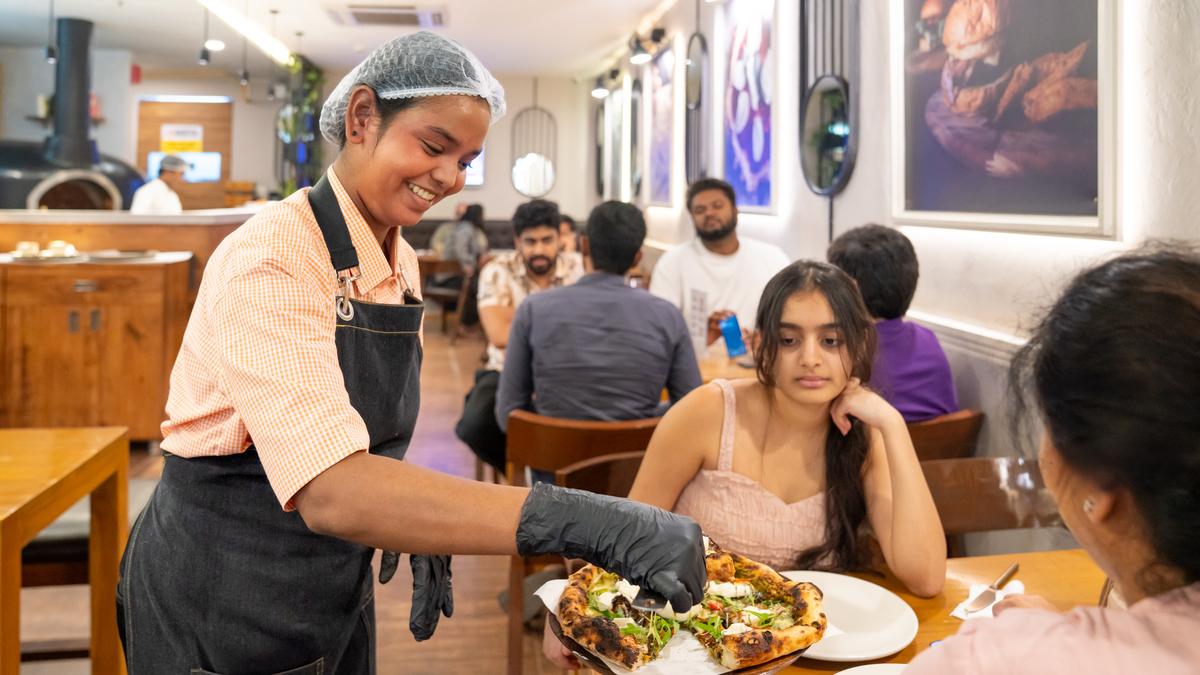The biryani lands on your table. You eat till the last morsel, follow it with dessert, make the payment and walk out, satisfied with what you call a “nice meal.” Rarely do we pause to think about what it takes to get that plate in front of us — the unseen reality of manpower.
Now, imagine this: you own a restaurant. You close at night, ready to open for business the next morning. At dawn, your phone buzzes relentlessly. Bleary-eyed, you read the message: The kitchen staff has quit.
Inside Masala Synergy
| Photo Credit:
Special Arrangement
Within a month of opening Tuya in Jubilee Hills, chef Suresh DC faced exactly this. His core team of five years, quit overnight without notice. “I had no time to react. I’m a chef, my sous chef was still there, so without wasting time we just got down to wash, chop, prep, cook, and serve 45 guests,” he recalls. With a skeletal service staff, they pulled it off.
But Suresh’s story is not unusual. Almost every restaurateur in India has lived this nightmare, sometimes scrambling for replacements, sometimes just surviving for days until they find their feet again.
The irony is the industry is booming. According to the National Restaurant Association of India (NRAI), the country’s food services market is projected to grow at 8.1% — outpacing GDP growth — and touch ₹5,69,487 crore by the end of this year. Yet, the churn of manpower continues to threaten kitchens across the country.
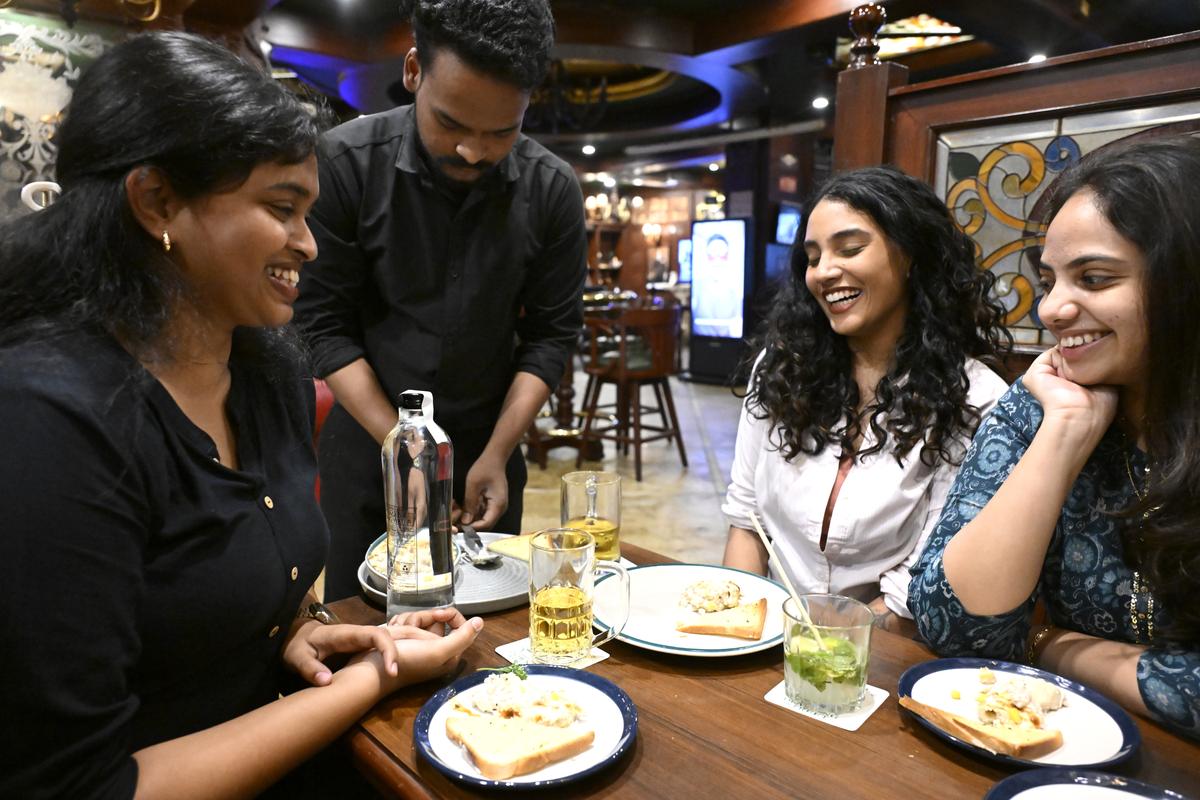
As the restaurant industry is growing rapidly in India it is also battling with staff issues. Diners at 10 Downing Street, Begumpet in Hyderabad
| Photo Credit:
RAMAKRISHNA G
Growth and expansion in the restaurant business is not directly proportional to the staff available. Shaaz Mehmood, managing committee member of NRAI points out, “Hyderabad alone has 74,807 restaurants and an organised food services market valued at ₹10,161 crore, ranking as the sixth largest in the country. Mumbai leads with ₹55,181 crore. Everyone talks about expansion —bigger spaces, elaborate menus, better infrastructure. But rarely about who will actually run the show on the ground. The service staff, the captain and his team, and the kitchen staff — the executive chef and his brigade — are the ones who make everything happen. Hiring is easy. Retaining is not.”
Shreya Kapoor, co-founder of Masala Synergy, a restaurant in Delhi , explains why attrition remains a persistent challenge: “The hospitality industry, especially restaurants, has always been a high-pressure environment. Long working hours, limited work-life balance, and the constant physical and mental demands often lead to burnout. With new restaurants and hotels constantly emerging, competition is intense, and employees tend to shift frequently for marginally better pay or benefits. The absence of structured training and clear career growth paths only adds to the problem.”
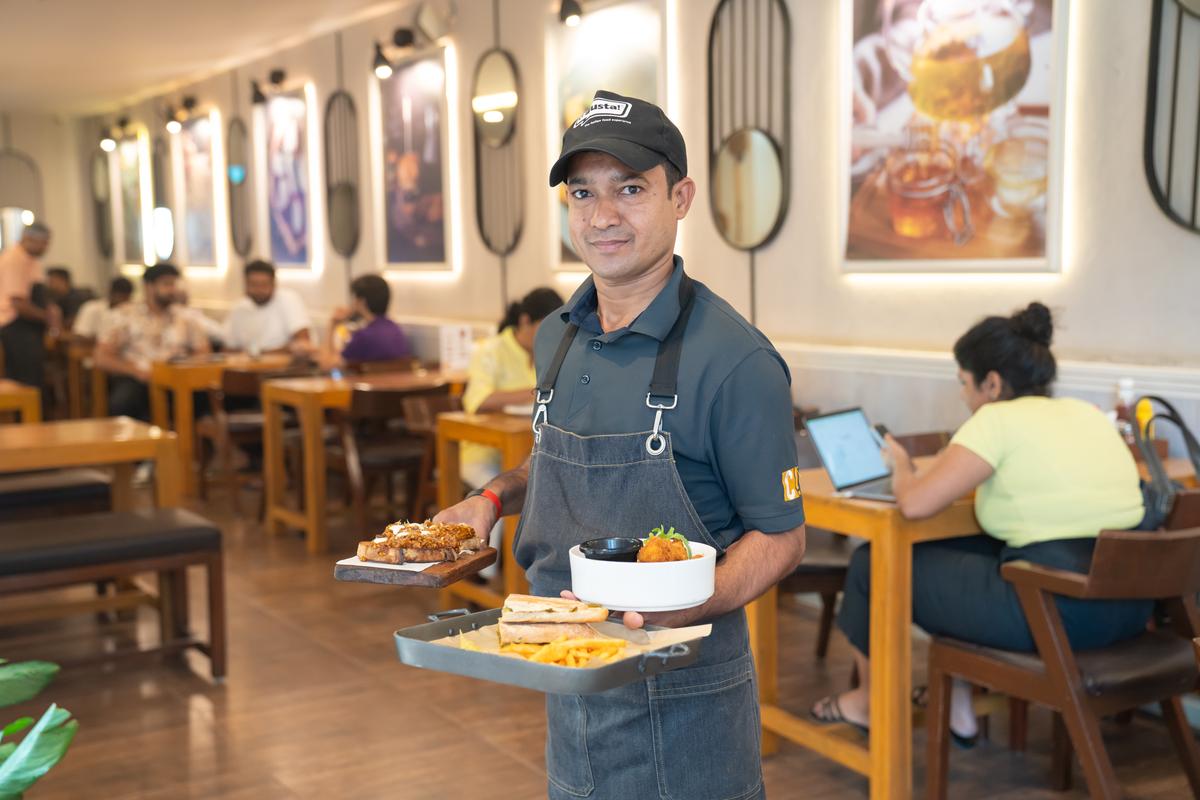
A busy day at Ci Gusta in Madhapur
| Photo Credit:
Dinesh Kakollu
According to the Indian Brand Equity Foundation (a trust established by the Department of Commerce, Ministry of Commerce and Industry), the restaurant sector is projected to employ 10.3 million people directly by 2028, up from 8.5 million in 2024. This makes it one of the largest employers in India — larger than many other sectors — and the country’s third-biggest industry overall.
But size does not cancel out strain. “While all this is true, staffing continues to be an issue,” says Shaaz. “Here’s a rough breakdown of how it works. Most waiters’ salaries are fixed, and about 80% of it goes back to their families. They keep very little for themselves because most employers provide food and accommodation. But young people need more than just that. So when they’re offered even a ₹2,000 hike, they move. I also feel we must bring back the tipping culture because it was an incentive staff looked forward to — the service charge tax doesn’t add up.”
Training, he adds, is the other way forward. “When they learn, they see themselves growing.” As India positions itself to become the world’s third-largest food services market by 2028, overtaking Japan, the National Restaurant Association of India (NRAI) has also stressed the need for supportive policies and structured training to harness this potential.
Japtej Ahluwalia, co-founder and executive director of Pricol Gourmet (Double Roti, Chennai) and secretary of NRAI, lists the issues that drive attrition: “Untimely payment of salaries tops the list, followed by long working hours. Finally, because restaurants are largely in the unorganised sector, there’s no barrier to entry. Anyone with ₹50 lakhs can start a restaurant without understanding how the industry works. The glamour attracts people, but staff poaching happens with hikes as low as ₹500 or ₹1,000. When attrition issues pile up, staff simply walk out.”
Currently, the unorganised sector outpaces the organised, but this balance is expected to flip by 2028. “Which makes skill centres a necessity,” adds Shaaz. “We need to move away from the cookie-cutter approach to the food business.”
For Honey Guha, Hyderabad-based hospitality consultant, training is also a morale builder. “It’s not just about skills — when staff feel appreciated by guests, when they’re part of team outings, when their ideas are heard in group discussions, they feel they belong to the business. With training, they don’t just see themselves growing in this fast-paced industry; they see their families growing with them.”
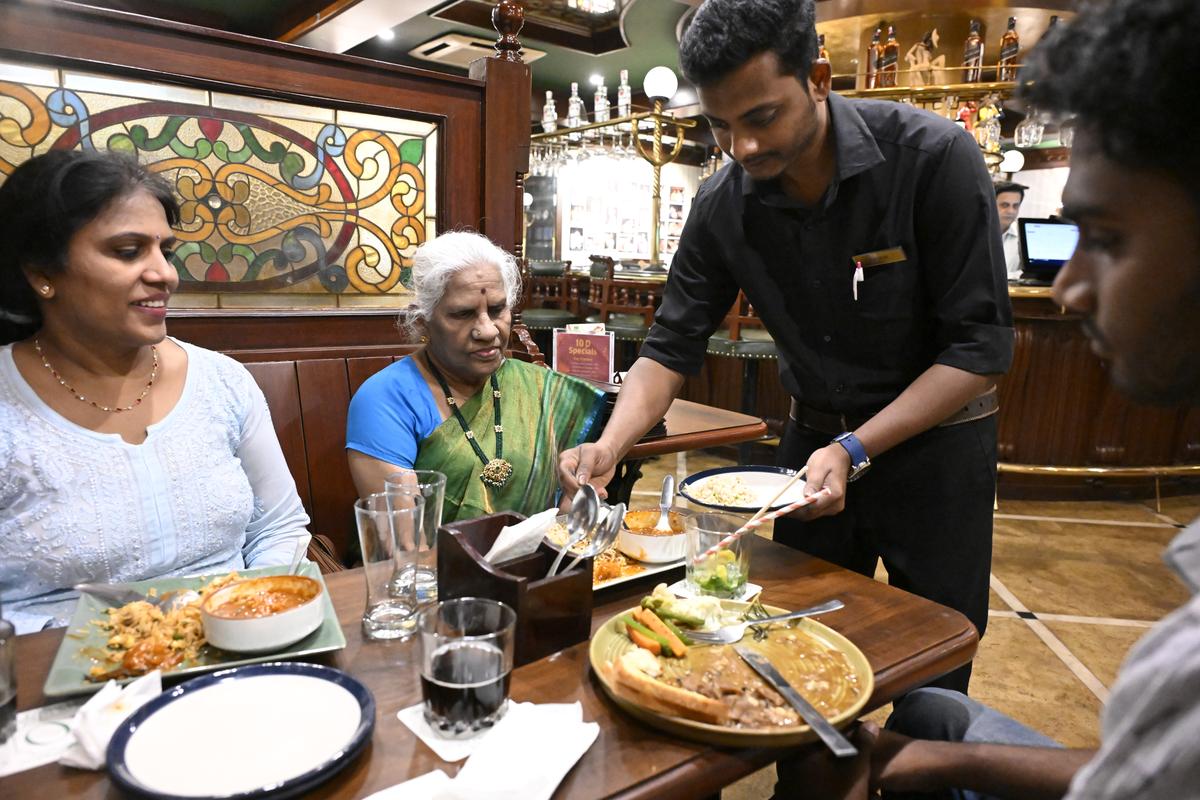
Diners at 10 D in Begumpet
| Photo Credit:
RAMAKRISHNA G
Someone who worked with a brand in Hyderabad over 26 years says growth and training kept him motivated. Anthony Lawrence who started with 10 Downing Street as a bar back is currently the General Manager of the brand’s outlet in Gachibowli. Anthony started work with the OG guys of pubbing scene in Hyderabad—Mohan Ram Reddy, Vinod Reddy and Prahlad Rao and stuck around because of the professional grooming. Anthony said, “We were trained to interact, remember regular orders and to build a rapport with out guests at a professional level. All these training about attention to details of our regulars helped us to get better at our work. I never intended to move out because the management treated us with respect and love.”
Shreya Kapoor, co-founder of Masala Synergy, echoes this. “Fostering an environment of respect, inclusivity, and recognition is key. Offering skill-development programs, clear career pathways, structured shifts, and fair scheduling ensures staff feel valued both professionally and personally.”
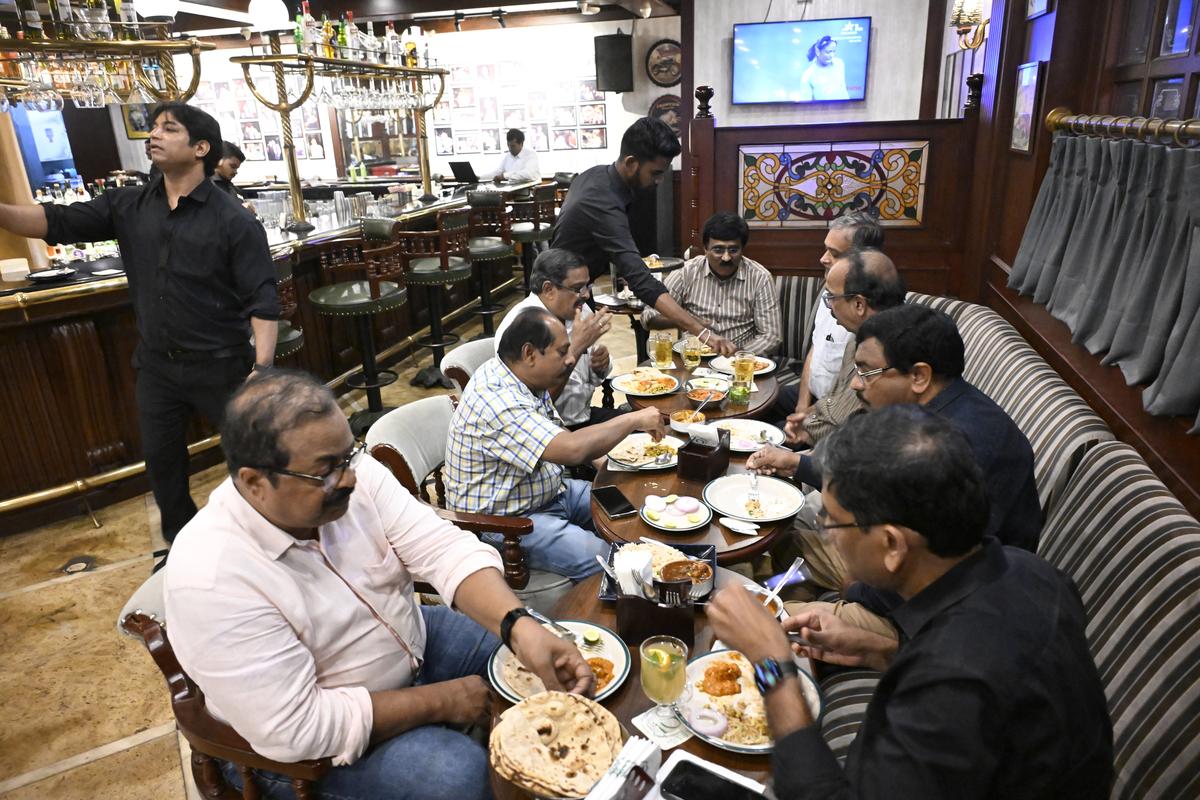
10 Downing Street is one of the oldest and most preferred eateries in Hyderabad
| Photo Credit:
RAMAKRISHNA G
The bigger shift, according to Vikrant Batra, co-founder of Café Delhi Heights, is to stop seeing restaurant jobs as stop-gap roles. “If nurtured the right way, these can be lifelong careers. As employers, it’s our duty to create a sense of work-life balance, which is essential but undervalued in this industry. We must also focus on fair pay. When employees feel they can build both a career and a life within the brand, attrition is no longer a challenge — it becomes loyalty and growth.”








